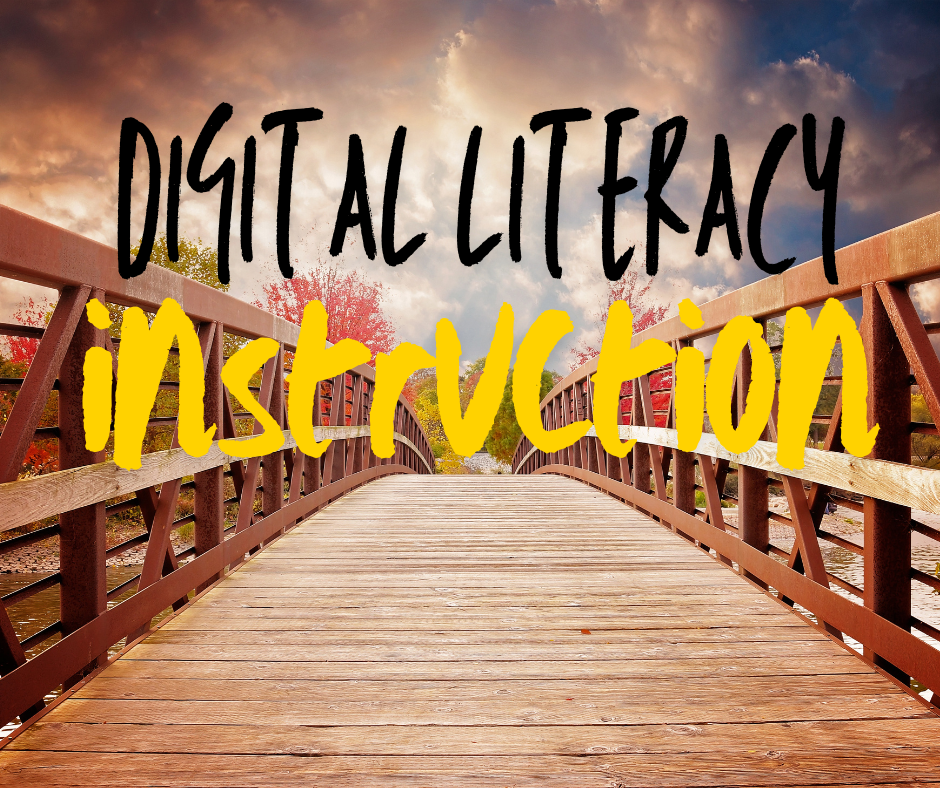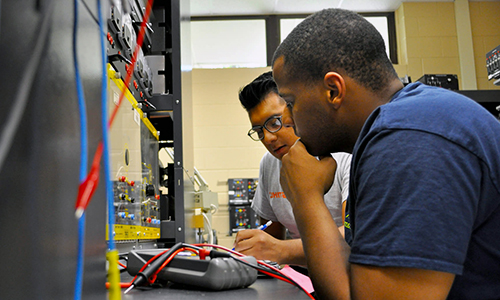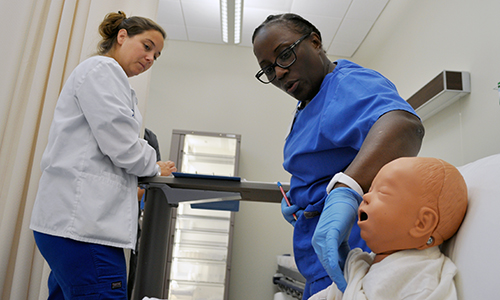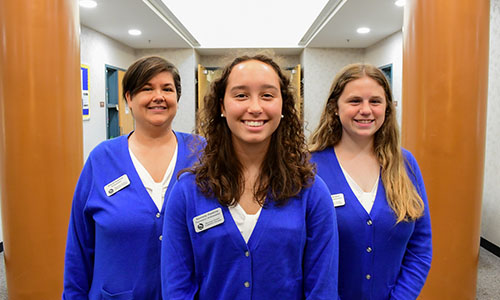Beaufort Digital Bridge is a FREE program designed to support individuals in navigating the digital world, particularly those in underserved or marginalized communities who may lack access, skills, or confidence with technology. By tackling issues like poor internet access, lack of digital skills, and financial challenges, the program aims to help people in these communities take part in the digital world. Through one-on-one support and community involvement, the program helps individuals and communities grow. It creates chances for economic improvement, social inclusion, and personal growth. Watch the short video below for an introduction to our program.
Available Services:
 |
Digital Navigator Services Digital Literacy Services are available on the BCCC Campus in Building #8, Room 827, Tues & Thurs from 12:30 pm - 3:00 pm. It is a lab format that is open entry, so no preregistration is required. Students can register and join the class any time. Services are also available off-campus by appointment only. Instructors can accommodate small groups at churches, businesses, libraries, etc. |

|
Digital Literacy Instruction |

|
Laptop & Hotspot Lending Library |

|
Telehealth Access Points (TAPs) in Eastern North Carolina Click here for a list of TAP sites in Eastern NC. |
We offer three easy ways to contact us to schedule an appointment!
1. Complete our online form to request services:
https://tinyurl.com/bdbcontactform
2. Email us at [email protected]
3. Call Beverly Bower at 252-940-6479 or
Crystal Miller at 252-940-6478 and leave a message.
Helpful Resource Links:
| Virtual AI Resources | Senior Planet has a terrific guidebook on AI for older adults explaining the basics of AI in plain language and providing concrete examples for how AI can be used in every day life. Their AI page has a fun little quiz to test your AI knowledge as well, which could be a great group activity in a workshop. |
| Assurance Wireless | https://www.assurancewireless.com/ |
| Lifeline Program | https://getinternet.gov/apply?id=nv_home&ln=RW5nbGlzaA%3D%3D https://www.lifelinesupport.org/ |
| DigitalLearn.org | https://www.digitallearn.org/ |
| Scam & Fraud Resources | https://socialbridgingnc.org/types-of-scams |
| Low Cost-Internet Plans | https://www.digitalinclusion.org/low-cost-internet-plans/ |
| Affordable Computers for Low-Income Adults | https://kramden.org/computers-for-low-income-adults/ |
| United Way's 211 Service | United Way’s NC 211 service connects callers to verified sources for basic needs, such as housing and utility assistance, food, healthcare and transportation. In addition, it now offers digital skills assessments, help setting up an email address, locations of libraries that offer free Wi-Fi or a computer lab and sites for upcoming computer skills classes. Their service is available in most languages and is open 24 hours a day, seven days a week, 365 days a year.https://www.ncbroadband.gov/news/press-releases/2024/11/19/more-north-carolinians-able-get-online-thanks-partnership-between-state-division-broadband-and |
| Digital Literacy Project Resources through University of Maryland "Learn on My Own" | https://marylandersonline.umd.edu/get-help/learn-my-own/ |
| DNC Department of Information Technology, Tech Resource Finder | https://www.ncbroadband.gov/resource-finder |
Marketing Flyers
Telehealth Resources
BCCC Telehealth Resources
Telehealth basics from the Department of Health and Human Services
The National Network of Libraries of Medicine Digital Health Literacy Tools
Health Equity Resources from the Department of Health and Human Services
Resources the National Consortium of Telehealth Resource Centers
- Resources and Guidance for the Deaf ad Hard of Hearing
- Telehealth and Disabilities: Recommendations for Providers
- WHO-ITU Global Standard for Accessibility and Telehealth
- NRTRC Telehealth Fact Sheets
Health Equity Resources from the Department of Health and Human Services
More Telehealth Resources
- Hawaii State Department of Health
- Pacific Basin Telehealth Resource Center
- Digital Literacy Assessment
- Telehealth basics from the Department of Health and Human Services
- The National Network of Libraries of Medicine Digital Health Literacy Tools
- California Telehealth Resource Center
- Centers for Medicare and Medicaid Service
- Telehealth: What to Know for your Family - English
- Telehealth: What to Know for your Family - Spanish
- Telehealth: What to Know for your Family - Arabic
- Telehealth: What to Know for your Family - Chinese
- Telehealth: What to Know for your Family - Haitian Creole
- Telehealth: What to Know for your Family - Korean
- Telehealth: What to Know for your Family - Russian
- Telehealth: What to Know for your Family - Vietnamese
- University of Utah Health's ADA considerations for telehealth
- HHS Health Equity in Telehealth
- NRTRC Telehealth Fact Sheets
- Northwest Regional Telehealth Resource Center's (NRTRC)
- NCTRC Telehealth Access Points (TAPs) Best Practices Guide
- Telehealth Locator
- Health Center Finder from HRSA
- 20 Things to Know about Telehealth Document from NRTRC
- My Telehealth Checklist Document
- NETRC Equipment Preparation Tool
- HHS Using a Patient Portal Tutorial
- Definitions and information about digital navigators, inclusion and equity
- Digital Navigator Toolkit
- Digital Literacy Assessment and skills building
- Free digital skills tutorials for internet basics, zoom and other technologies
- Digital Navigator Infographic
- AFTRR Map
- Free & Low-Cost Internet Plans
- FCC's Lifeline Program
- The Telehealth Technology Assessment Center
- Video Platforms: Customer Point of View
- The National Consortium of Telehealth Resource Centers
- Digital Navigator Toolkit
- https://nrtrc.org/downloads/DIF-Provider-Platform.pdf
- Digital Literacy Assessment
- National Library of Medicine
- All of Us Research Program
- Digital Health Literacy
- Participant Device Access
- Participant Space Access Map
- Participant Internet Access Map
- Provider Platform
- Establishing Telehealth Appropriate
- Cost Considerations
- Coverage to Care (C2C) Telehealth: What to Know
- This document, provided by the Centers for Medicare and Medicaid Services (CMS) was created to educate participants on telehealth basics and give other resources on health plan coverage. It is available in English, Spanish, Arabic, Chinese, Haitian Creole, Korean, Russian and Vietnamese.






